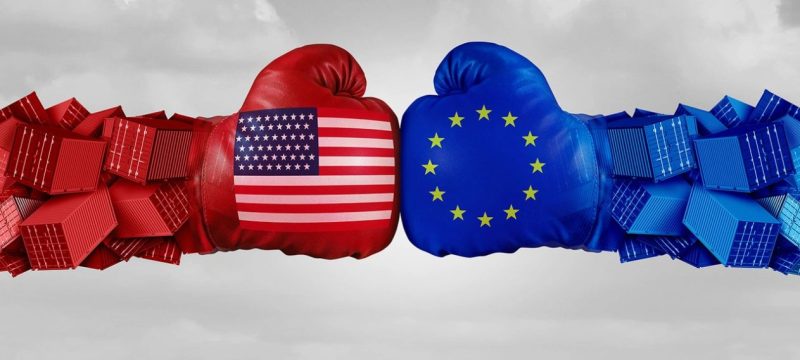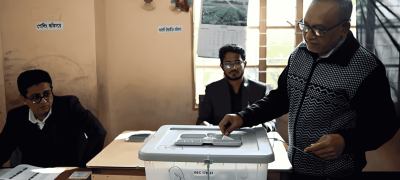U.S. President Donald Trump has agreed to postpone a proposed 50% tariff on European Union imports until July 9, following what he described as a “very nice” phone call with European Commission President Ursula von der Leyen.
Speaking from Morristown Municipal Airport in New Jersey on Sunday, Trump revealed that the delay came at von der Leyen’s request, with both leaders expressing a willingness to resume trade discussions promptly. “She asked if we could push it from June 1 to July 9 to allow serious negotiations. I agreed,” Trump stated.
Read more: US President Trump Signs Orders to Speed Up Nuclear Reactor Licences
The move continues a familiar pattern in Trump’s trade strategy, where he initially announces harsh tariffs before easing them, creating periodic uncertainty for global markets and U.S. trading partners. Just two days earlier, Trump had asserted there would be no deal with the EU and insisted the tariff would take effect on June 1.
Minutes after his comments to the press, Trump confirmed on Truth Social that negotiations would commence swiftly.
Von der Leyen also shared her thoughts on X (formerly Twitter), calling the conversation “good” and highlighting the importance of the transatlantic economic partnership. She emphasized Europe’s readiness to engage in meaningful talks, saying the extra time until July 9 was essential for a productive agreement.
The temporary delay provides some relief for European exporters, but the broader future of U.S.-EU trade relations remains uncertain. Trump has long criticized what he views as unfair, non-financial trade practices and has voiced frustration with trading partners that maintain a surplus with the U.S.
In 2024, the U.S. trade deficit with the EU stood at $236 billion, according to the U.S. Commerce Department. While Trump sees tariffs as a tool to rebalance trade, many economists and business leaders argue that such tactics introduce volatility into global commerce.
Markets across Asia reacted cautiously to the tariff postponement. Japan’s Nikkei 225 rose 0.8%, South Korea’s KOSPI gained 0.9%, and China’s Shanghai Composite edged up 0.3%. Meanwhile, Taiwan and Australia’s markets remained stable, and Hong Kong’s Hang Seng Index dipped by 0.3%.
Separately, Trump commented on Treasury Secretary Scott Bessent’s recent remarks suggesting the U.S. shouldn’t focus on reviving the textile industry. Trump expressed agreement, stating, “We’re not aiming to make sneakers and t-shirts — we want to build military gear, large-scale equipment, and lead in the AI and tech sectors.”









